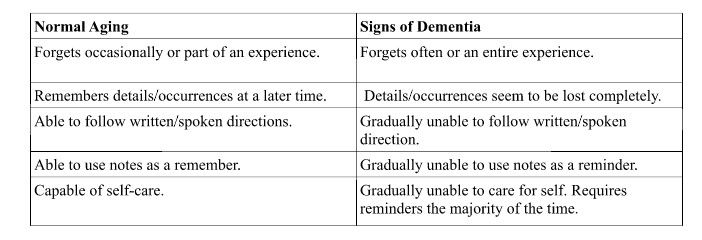World Alzheimer's Day 2018
Today (Friday, September 21st) is World Alzheimer’s Day! We wanted to take this opportunity to share a bit about the disease effecting so many of our clients and their families.
A common error…
Many people use Alzheimer’s and dementia interchangeably; however, there is a pretty significant difference.
Dementia is not a specific disease. It is an overall term used to describe symptoms associated with cognitive decline that may impact memory, behaviors and emotions, ability to perform basic activities of daily living, communication, etc.
Alzheimer's Disease is the most common type of dementia. It is a progressive disease of the brain, effecting memory, language and thought process.
It may be confusing to try and identify if the changes you see in a loved one are due to normal aging or early signs of dementia or Alzheimer’s. The safest thing to do upon observing any changes is to immediately discuss the matter with a doctor.
A closer look at Alzheimer's versus normal aging patterns…

Tips for caring for a person with Alzheimer's…
It is important to set a positive mood for interaction. Attitude and body language communicate your feelings and thoughts more strongly than your words do. Always speak in a pleasant and respectful manner. Use facial expressions, tone of voice, and physical touch to help convey your message.
When attempting a conversation…
1. Grab the person’s attention. Limit distractions and noise or move to quieter surroundings. Before speaking, make sure you have his/her attention. Address the individual by name and use nonverbal cues and touch to help keep him/her focused.
2. State your message clearly. Use simple words and sentences. Speak slowly, distinctly, and in a reassuring tone.
3. Ask simple, answerable questions. Ask one question at a time; preferably questions with yes or no answers work best. Refrain from asking open-ended questions or giving too many choices.
4. Listen with your ears, eyes. Be patient in waiting for a reply. If he/she is struggling for an answer, it’s okay to suggest words. Watch for nonverbal cues and body language, and respond appropriately.
Resources:




